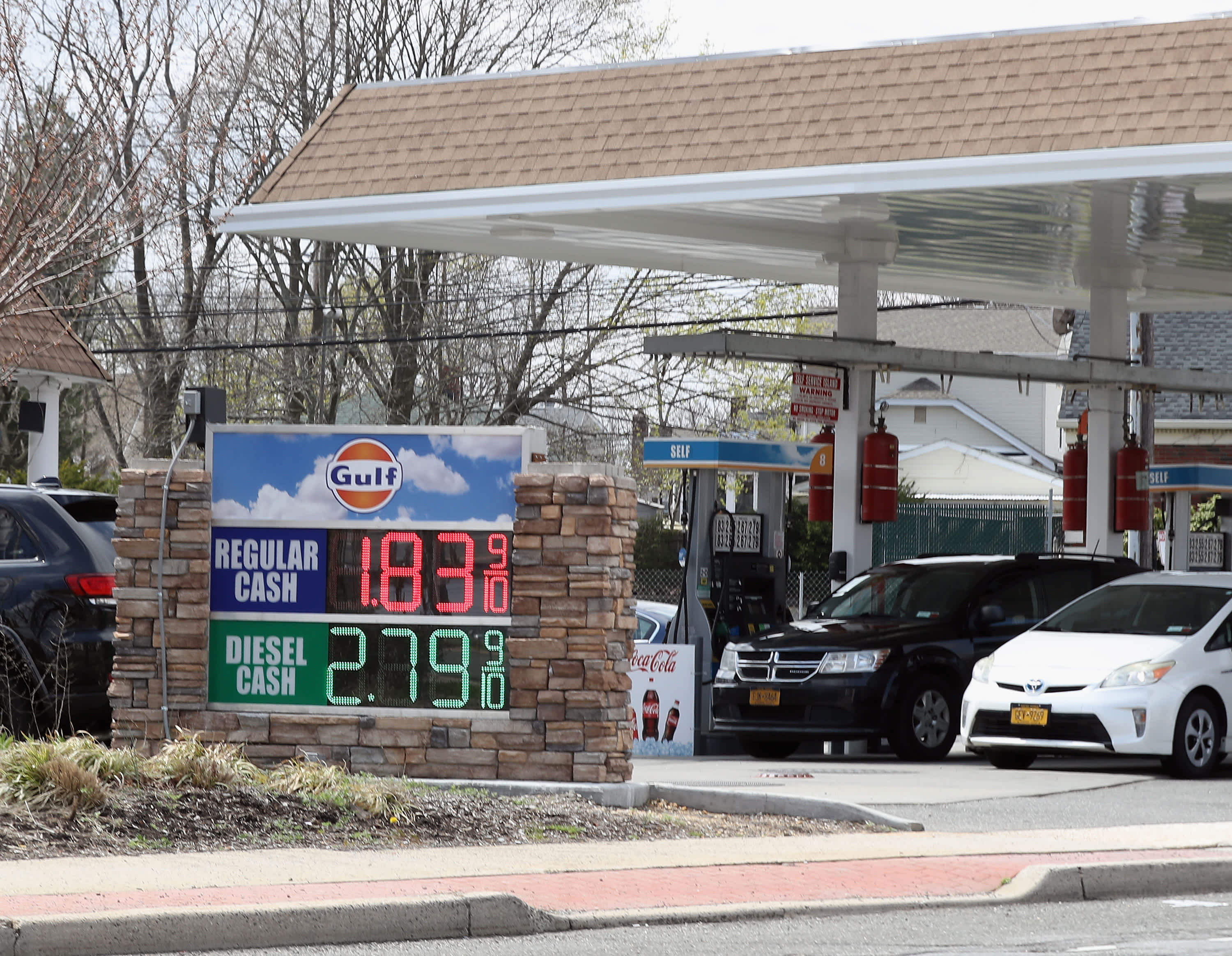Wholesale gasoline prices are collapsing, a sign that more refineries will cut back or shut down and prices at the pump could sink to under $1 a gallon in more parts of the country, analysts said.
In some sections of the Midwest on Wednesday, distributors were getting just about 10 cents for a gallon of unleaded gasoline mixed with ethanol. Prices of less than 20 cents a gallon were found in Colorado, Wisconsin, Iowa, Montana and the Dakotas, but in other parts of the country they are higher. In Los Angeles, for instance, the price was about 35 cents per gallon, according to Oil Price Information Services.
As the U.S. economy went into shutdown, an over supply of gasoline became a major glut, and even though refineries have cut back by about 20%, they are running out of places to put gasoline.
“I’m pretty sure these wholesale prices and spot prices are as low as anything we’ve seen since before the Arab oil embargo” in the early 1970s, said Tom Kloza, head of global energy analysis at Oil Price Information Services. “I think you are going to see much more common sub-$1 gasoline prices in the nation’s midsection, and I think we are looking at a national average of $1.25 to $1.50” at the pump.
Unleaded gasoline retail prices averaged $1.90 per gallon nationally Wednesday, but were lower in much of the country, according to AAA. The states with the cheapest average prices include Wisconsin, Texas, Arkansas and Oklahoma. The highest prices were in the Northeast and Mid-Atlantic, and on the West Coast and other parts of the West. Many of these areas have higher gasoline taxes.
“The sore spots extend from Ohio through to the Great Lakes and all the states that border that, and the Rockies,” said Kloza. He explained that the super low prices under 20 cents per gallon at the rack, where trucks fill up with fuel, are lower than spot prices in the wholesale market and are way below gasoline prices in the futures market.
Government data shows that drivers used just 5.1 million barrels a day last week, well below the 9.8 million barrels a day at the same time last year. Kloza said the U.S. drivers last consumed that amount in 1968.
“We’ve never been in a situation where demand ran into a brick wall and dropped precipitously in such a short time. In other situations, where we had economic shutdowns, we’ve seen a deterioration in demand over time — over months and years,” said Andrew Lipow, president of Lipow Oil Associates.
Lipow said refineries will have to cut more. “If refineries are only cutting throughput [production] rates 20% to 30%, it’s not enough, and as a rule inventories are filled up to the point where refiners are either going to have to cut additional throughput rates or shut down, “said Lipow. He said a Marathon refinery in New Mexico is already shutting down, and other small refineries could follow while larger ones could cut back more production.
“When you see these discounts and you see these numbers, that tells you they can’t clear gasoline,” said Kloza. “In the country’s midsection, there is too much gasoline. There is more than 50 days supply there, and they are going to cut refinery runs.”
Kloza said refiners are reviewing operations. “It tells you the refineries are in trouble. I personally think there’s a half dozen refineries now that are being reviewed by the companies that run them and they are candidates for closure,” he said.
Low prices are perilous for refiners, but production shutdowns could be problematic in the future.
“Usually, these low prices would be stimulative and consumers would drive with abandon,” said John Kilduff, partner of Again Capital. “Until we get out of this siege, we’re not going to have a rebound in gasoline demand. On the other side of this, it’s going to take time for the refineries to ramp back up. I’m concerned we could find ourselves in a very tight market very quickly. if a V shaped recovery emerges, we could go from these very cheap prices to very high prices very quickly.”
The U.S. gasoline market is a critical swing factor in the global oil market, accounting in normal times for about 10% of oil demand.
As wholesale prices fell, the price of gasoline for May in the futures market was 70 cents per gallon Wednesday. That reflects the price in New York harbor, and traders also use it to arbitrage oil prices, so it’s not unusual for it to be higher than spot prices. In the New York area, Kloza said rack prices were 49 cents per gallon in Newark, N.J.
